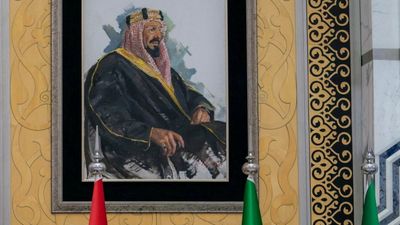While the summit is unlikely to result in any big announcements – though the situation in Sudan will be high on the agenda – Assad’s invitation by Riyadh after a decade of isolation sends a strong message. It’s a snub to those in the West who continue to emphasize Assad’s pariah status, and it’s a solid victory for Assad’s key backers: Iran and Russia.
Assad, you’ll likely remember, used chemical weapons in a war over the past decade that killed more than 306,000 and displaced 12 million people (more than 6 million remain abroad).
Since then, the Saudis and Egyptians, who have the most power within the 22-member bloc, have shunned Assad. So why the about-face now?
Arab states have different reasons for pursuing a detente with Assad. For Saudi, which recently reopened its embassy in Damascus, cozying up to Assad can be seen as part of a broader strategy of repairing ties with Iran – to which Syria is a client state. Riyadh is focused on diversifying its economy away from hydrocarbons, and de-escalating regional tensions is key to luring the investment needed to get new industries off the ground. Riyadh also wants to crack down on Syria's drug trade, which is wreaking havoc across the Arab world. Many Arab countries are also vying for lucrative reconstruction contracts to rebuild the war-torn county.
Still, the Arab League is a largely ineffective bloc. Of greater relevance will be whether Assad agrees to attend the COP28 climate summit in Dubai later this year after the Emiratis recently sent him an invite. Indeed, this important event will be attended by high-ranking US and European officials, which would make for some awkward interactions.
Still, the US and Europe have said they have no intention of letting Assad back in back from the cold.
